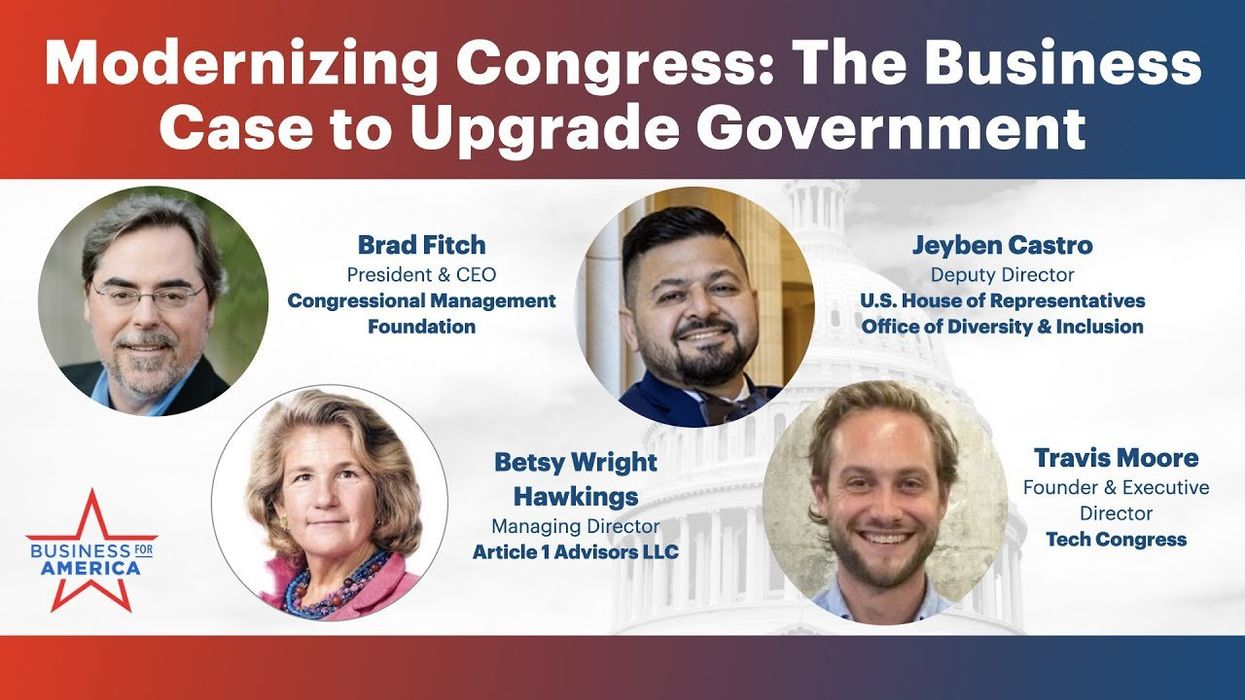Antiquated operations and processes, out-of-date technology, and 20th-century personnel and management practices make it difficult for members of Congress to provide business and other constituents with the level of service they deserve — including businesses, large and small.
In 2018, six Democrats and six Republicans formed the Select Committee on the Modernization of Congress with the goal of making the institution more effective and efficient. At a time when Congress is increasingly polarized, the committee has been an exciting model of bipartisan progress.
The committee’s work drew to a close at the end of 2022 and resulted in over 200 recommendations on improving the adoption of technology and changing long-standing rules and norms. So far, 132 of the committee’s recommendations have been fully or partially implemented — but there is still more to do.
In the 118th Congress, BFA is mobilizing the business community to advocate for adopting additional recommendations to revitalize Congress to make it work better for every American.




















